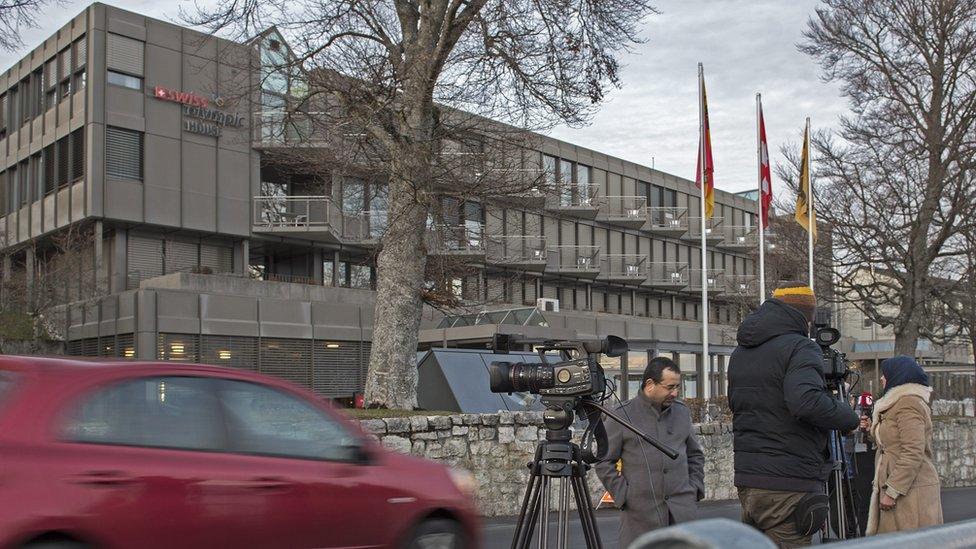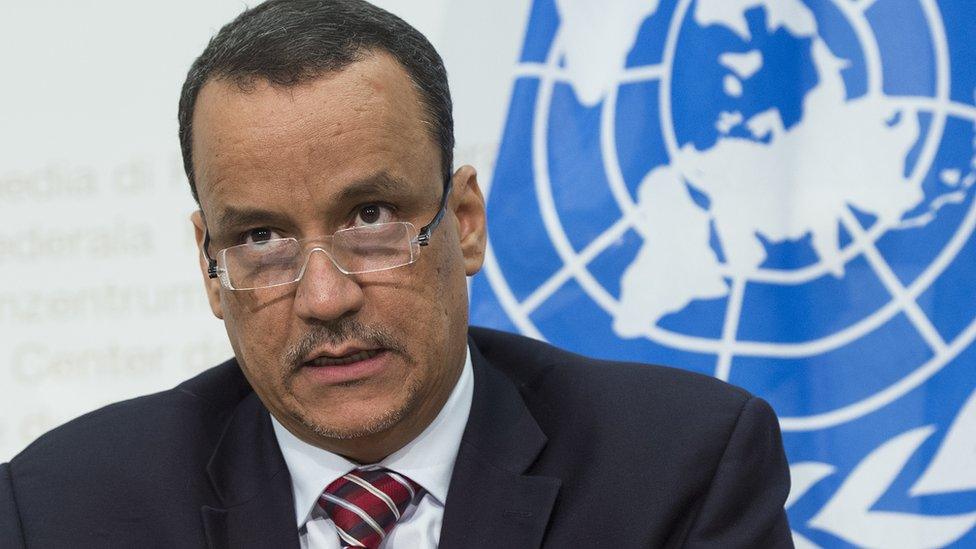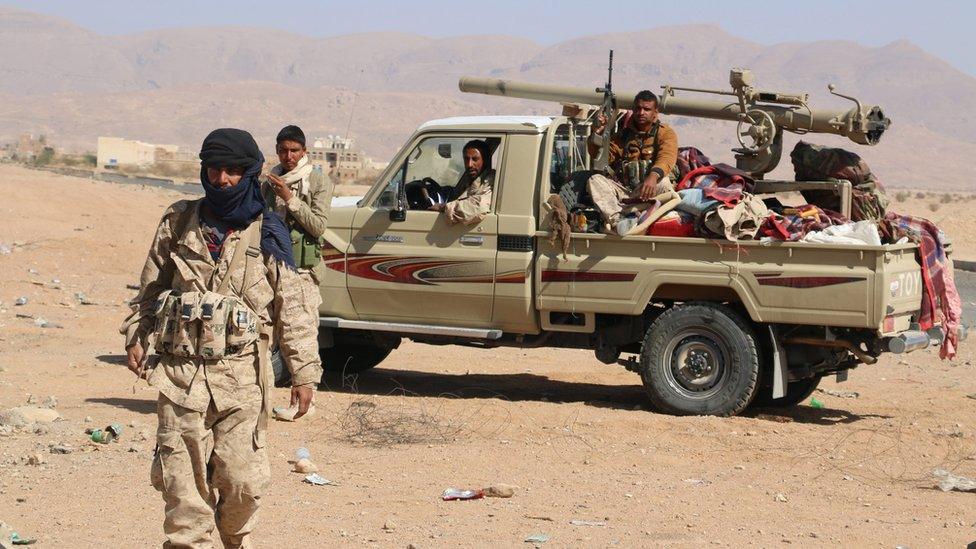Yemen crisis: Peace talks to resume on 14 January
- Published

The talks have been held under tight security in the village of Macolin, near Biel
Peace talks aimed at ending the conflict in Yemen have broken up in Switzerland without agreement.
UN special envoy Ismail Ould Cheikh Ahmed said the talks will resume on 14 January at an as yet undecided location.
He said some progress had been made, but that violations of a temporary ceasefire had caused problems.
Fierce fighting has continued in the north of Yemen between Houthi rebels and forces backing the government.
Yemen's humanitarian catastrophe
Meeting the Houthis and their enemies
Mr Ahmed told a news conference that all his efforts over the next few days and weeks would be devoted to ensuring a ceasefire does hold.
"We have achieved during the recent days big progress but it's not enough and we need to exchange more views between the participants," he said.
"It's a step in the right direction. Now we have to go on and we have to give momentum to this process."

UN special envoy Ismail Ould Cheikh Ahmed said some progress was made
The BBC's Imogen Foulkes in Berne says the talks failed to achieve the fundamental thing that the UN wanted - a ceasefire that holds.
To address that, a de-escalation committee has been created in which military leaders from both sides will take part.
If a more lasting ceasefire can be created, our correspondent adds, other steps to peace may follow such as the release of prisoners and the withdrawal of heavy weapons.
The Houthi rebels forced President Abdrabbuh Mansour Hadi to flee the capital, Sanaa, in February.
But in March a Saudi-led coalition launched a military campaign in support of the government.
Since then, at least 5,884 people, almost half of them civilians, have been killed in air strikes and fighting on the ground.

Why is there fighting in Yemen?

Fighting has continued in the north, despite a ceasefire
Northern Shia Muslim rebels known as Houthis, backed by forces loyal to Yemen's ex-president, took over parts of Yemen, including the capital, Sanaa, and forced the government into exile in March
The rebels accused the government of corruption and of planning to marginalise their heartland within a proposed federal system
Forces loyal to the government and Southern militias, aided by Saudi-led coalition air strikes and troops, have since regained control of five southern provinces
